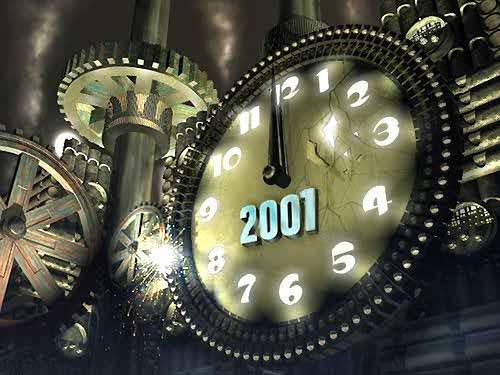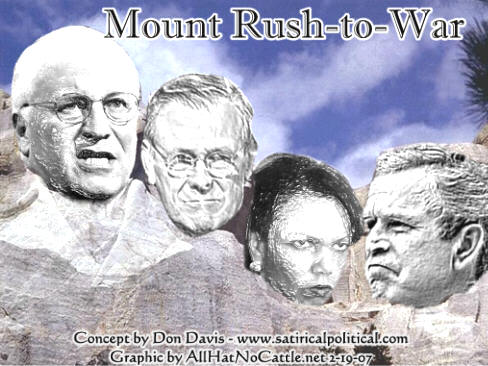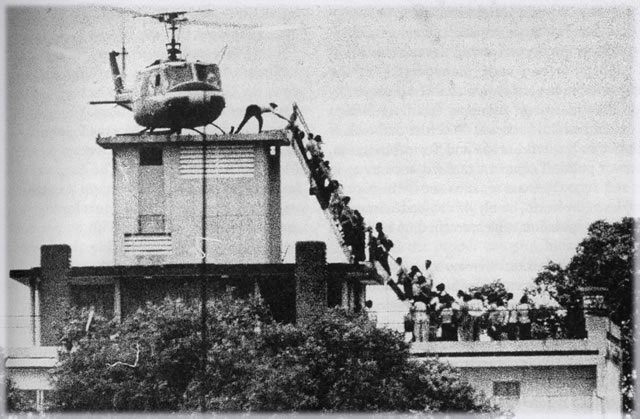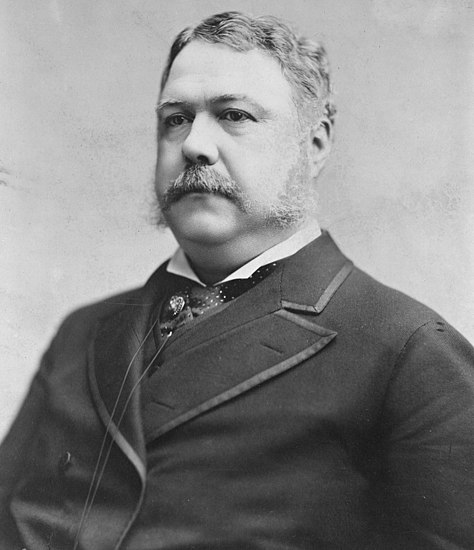
By FRANK RICH
The New York Times
February 25, 2007
“UNITED 93,” Hollywood’s highly praised but indifferently attended 9/11 docudrama, will be only a blip on tonight’s Oscar telecast. The ratings rise of “24” has stalled as
audiences defect from the downer of terrorists to the supernatural uplift of “Heroes.” Cable surfers have tuned out Iraq for a war with laughs:
the battle over Anna Nicole’s decomposing corpse. Set this cultural backdrop against last week’s terrifying but little-heeded
front-page Times account of American “intelligence and counterterrorism officials” leaking urgent warnings about Al Qaeda’s comeback, and ask yourself: Haven’t we been here before?
If so, that would be the summer of 2001, when America pigged out on a 24/7 buffet of Gary Condit and
shark attacks. The intelligence and counterterrorism officials back then were privately sounding urgent warnings like those in last week’s Times, culminating in the President’s Daily Brief titled “Bin Laden Determined to Strike in U.S.” The system “
was blinking red,” as the C.I.A. chief George Tenet would later tell the 9/11 commission. But no one, from the White House on down, wanted to hear it.
The White House doesn’t want to hear it now, either. That’s why terrorism experts are trying to get its attention by going public, and not just through The Times. Michael Scheuer, the former head of the C.I.A. bin Laden unit,
told MSNBC’s Keith Olbermann last week that the Taliban and Al Qaeda, having regrouped in Afghanistan and Pakistan, “are going to detonate a nuclear device inside the United States” (the real United States, that is, not the fictional stand-in where this same scenario can be found on “24”). Al Qaeda is “on the march” rather than on the run, the Georgetown University and
West Point terrorism expert Bruce Hoffman told Congress. Tony Blair is
pulling troops out of Iraq not because Basra is calm enough to be entrusted to Iraqi forces — it’s “not ready for transition,” according to the
Pentagon’s last report — but to shift some British resources to the losing battle against the resurgent Taliban in Afghanistan.
This is why the entire debate about the Iraq “surge” is as much a sideshow as Britney’s scalp. More troops in Baghdad are irrelevant to what’s going down in Afghanistan and Pakistan. The surge supporters who accuse the Iraq war’s critics of emboldening the enemy are trying to deflect attention from their own complicity in losing a bigger battle: the one against the enemy that actually did attack us on 9/11. Who lost Iraq? is but a distraction from the more damning question, Who is losing the war on terrorism?
The record so far suggests that this White House has done so twice. The first defeat, of course, began in early December 2001, when we
lost Osama bin Laden in Tora Bora. The public would not learn about that failure
until April 2002 (when it was uncovered by The Washington Post), but it’s revealing that the administration started its bait-and-switch trick to relocate the enemy in Iraq just as bin Laden slipped away. It was on Dec. 9, 2001, that Dick Cheney first floated the idea on “Meet the Press” that
Saddam had something to do with 9/11. It was “pretty well confirmed,” he said (though it was not), that bin Laden’s operative Mohamed Atta had met with an Iraqi intelligence officer in Prague months before Atta flew a hijacked plane into the World Trade Center.
In the Scooter Libby trial, Mr. Cheney’s former communications aide, Catherine Martin, said that delivering a message on “Meet the Press” was “
a tactic we often used.” No kidding. That mention of the nonexistent Prague meeting was the first of five times that the vice president would imply an Iraq-Qaeda collaboration on that NBC show before the war began in March 2003. This bogus innuendo was an essential tool for selling the war precisely because we had lost bin Laden in Afghanistan. If we could fight Al Qaeda by going to war in Iraq instead, the administration could claim it didn’t matter where bin Laden was. (Mr. Bush pointedly stopped mentioning him altogether in public.)
The president now says his government
never hyped any 9/11-Iraq links. “Nobody has ever suggested that the attacks of September the 11th were ordered by Iraq,” he said last August after finally conceding that Iraq had nothing to do with 9/11. In fact everyone in the administration insinuated it constantly, including him. Mr. Bush told of “high-level” Iraq-Qaeda contacts “that go back a decade” in the same
notorious October 2002 speech that gave us Saddam’s imminent mushroom clouds. So effective was this propaganda that by 2003 some
44 percent of Americans believed (incorrectly) that the 9/11 hijackers had been Iraqis; only 3 percent had seen an Iraq link right after 9/11.
Though the nonexistent connection was even more specious than the nonexistent nuclear W.M.D., Mr. Bush still leans on it today even while denying that he does so. He has to. His litanies that we are “on the offense” by pursuing the war in Iraq and “fighting terrorists over there, so that we don’t have to fight them here” depend on the premise that we went into that country in the first place to vanquish Al Qaeda and that it is still the “central front” in the war on terror. In January’s
State of the Union address hawking the so-called surge, Mr. Bush did it again, warning that to leave Iraq “would be to ignore the lessons of September the 11th and invite tragedy.”
But now more than ever, the opposite is true. It is precisely by pouring still more of our finite military and intelligence resources down the drain in Iraq that we are tragically ignoring the lessons of 9/11. Instead of showing resolve, as Mr. Bush supposes, his botch of the Iraq war has revealed American weakness. Our catastrophic occupation spawned terrorists in a country where they didn’t used to be, and to pretend that Iraq is now their central front only adds to the disaster. As Mr. Scheuer, the former C.I.A. official, reiterated last week: “Al Qaeda is in Afghanistan and Pakistan. If you want to address the threat to America, that’s where it is.” It’s typical of Mr. Bush’s self-righteousness, however, that he would rather punt on that threat than own up to a mistake.
That mistake — dropping the ball on Al Qaeda — was compounded last fall when Mr. Bush committed his second major blunder in the war on terror. The occasion was the September revelation that our supposed ally, Gen. Pervez Musharraf, president of Pakistan, had
negotiated a “truce” with the Taliban in North Waziristan, a tribal region in his country at the Afghanistan border. This truce was actually a retreat by Pakistan, which even released Qaeda prisoners in its custody. Yet the Bush White House
denied any of this was happening. “This deal is not at all with the Taliban,” the president said, claiming that “this is against the Taliban, actually.” When Dana Priest and Ann Scott Tyson of The Washington Post reported that same month that the
bin Laden trail was “stone cold” and had been since Mr. Bush diverted special operations troops from that hunt to Iraq in 2003, the White House branded the story
flat wrong. “We’re on the hunt,”
Mr. Bush said. “We’ll get him.”
Far from getting him or any of his top operatives dead or alive, the president has sat idly by, showering praise on General Musharraf while
Taliban attacks from Pakistan into Afghanistan have increased threefold. As The Times reported last week, now both bin Laden and his deputy, Ayman al-Zawahri, are believed to be “steadily building an operations hub” in North Waziristan. We know that last year’s London plot to bomb airliners, like the bus-and-subway bombings of 2005, was not just the work of home-grown jihadists in Britain, but also of Qaeda operatives. Some of the would-be bombers were trained in Qaeda’s Pakistan camps much as their 9/11 predecessors had been trained in Afghanistan.
All of this was already going on when Mr. Bush said just before the election that “
absolutely, we’re winning” and that “Al Qaeda is on the run.” What’s changed in the few months since his lie is that even more American troops are tied down in Iraq, that even more lethal weapons are being used against them, that even more of the coalition of the unwilling are fleeing, and that even more Americans are tuning out both the administration and the war they voted down in November to savor a referendum that at least offers tangible results, “American Idol.”
Yet Mr. Bush still denies reality. Ten days ago
he told the American Enterprise Institute that “the Taliban have been driven from power” and proposed that America help stabilize the Pakistan border by setting up “Reconstruction Opportunity Zones” (remember that “
Gulf Opportunity Zone” he promised after Katrina?) to “give residents the chance to export locally made products to the United States, duty-free.” In other words, let’s fight terrorism not by shifting America’s focus from Iraq to the central front, but by shopping for Taliban souvenirs!
Five years after 9/11, the terrorists would seem to have us just where they want us — asleep — even as the system is blinking red once again.


































